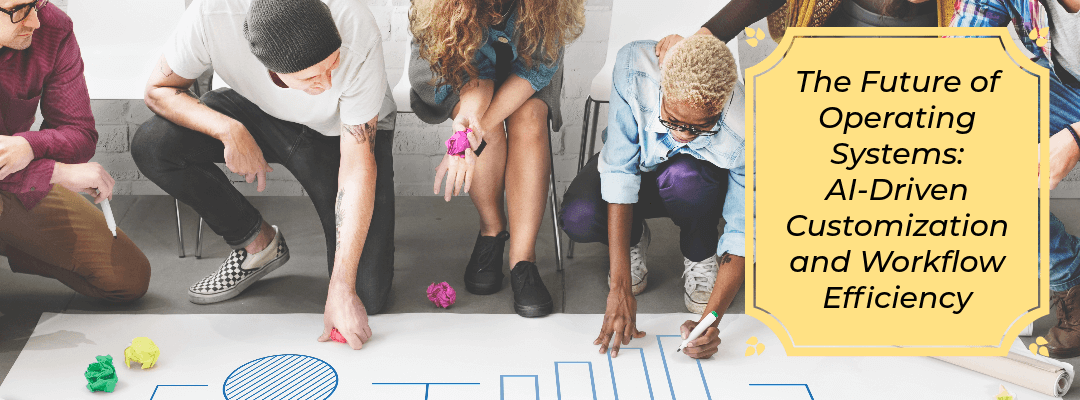The Future of Operating Systems: AI-Driven Customization and Workflow Efficiency

Introduction
The operating system (OS) is the cornerstone of any computing device, providing the crucial interface between computer hardware and the user. Traditionally, operating systems have been rigid structures with little room for adaptability, designed to execute specific functions and handle particular tasks. However, the future of operating systems is on the verge of a radical transformation, thanks to the integration of Artificial Intelligence (AI). According to the article "Four Letters Changing Computers," AI-driven operating systems, referred to as "AI OS," promise to revolutionize our interaction with computers by being more responsive, personal, and context-aware. In this blog post, we'll delve into the sweeping changes AI OS is poised to bring and how it will redefine computing as we know it.
Custom User Experience (UX)
More Personal Than Ever
One of the most groundbreaking features of AI OS is the provision for custom UX based on individual workflow. The operating system will no longer be a one-size-fits-all solution; instead, it will adapt to the unique needs and preferences of each user. Imagine an OS that knows when you usually check your email, what software you use the most, and even your preferred keyboard shortcuts. This level of personalization could significantly enhance user satisfaction and productivity.
Smart Recommendations
The AI OS isn't just about following your lead; it's about guiding you to better work habits and more efficient processes. With the integration of advanced AI algorithms, your OS could suggest more effective ways of performing tasks, recommend software that could aid your workflow, or even identify bottlenecks in your current processes.
Context Awareness
Harmonizing with Surroundings
Another intriguing feature of AI OS is its ability to be context-aware. For instance, it can automatically silence notifications when you're on a call or adjust screen brightness based on ambient lighting. This intelligent adaptability ensures that your computing experience harmonizes with your physical environment, reducing distractions and improving focus.
Security Implications
Context awareness also has significant implications for security. AI OS can identify unusual behavior or settings that might signify a security threat. For instance, if the system detects that you're connected to an unsecured Wi-Fi network, it could prompt you to disconnect or take additional security measures.
AI in Content Creation
Generative AI and Idea Generation
The integration of Generative AI and search engines powered by large language models into AI OS will provide immense support in content creation. Whether you're drafting professional emails, creating PowerPoint decks, or writing reports, AI can offer suggestions, correct errors, and even generate content, thereby making the creative process more efficient and less tedious.
Predictive Coding for Tech Workers
For those in the tech industry, the implications are even more exciting. Predictive coding features can assist in writing code more efficiently, offering suggestions, and identifying errors in real-time. This could significantly speed up development cycles and improve code quality.
Challenges and Ethical Considerations
Data Privacy
While the benefits are enormous, the AI OS also raises concerns about data privacy. With the operating system collecting vast amounts of data to provide personalized experiences, how secure is this information? It's essential for developers and users alike to consider the ethical implications of data collection and usage.
Job Displacement
With AI taking over more functions, there's the inevitable question of job displacement, particularly in fields like tech support and system administration. As AI becomes more capable, the need for human intervention in these areas may diminish.
Conclusion
AI OS is set to redefine our interaction with computers, offering unprecedented levels of customization, efficiency, and context-awareness. As we stand on the cusp of this technological revolution, it is vital that we prepare ourselves for both its incredible advantages and its ethical and societal implications.
The future of operating systems is not just about better hardware or more features; it's about creating an intelligent environment that adapts to us, understands us, and enhances our capabilities. AI OS promises to be a giant leap in this direction, offering a future where our interaction with computers becomes more natural, intuitive, and efficient than ever before.

